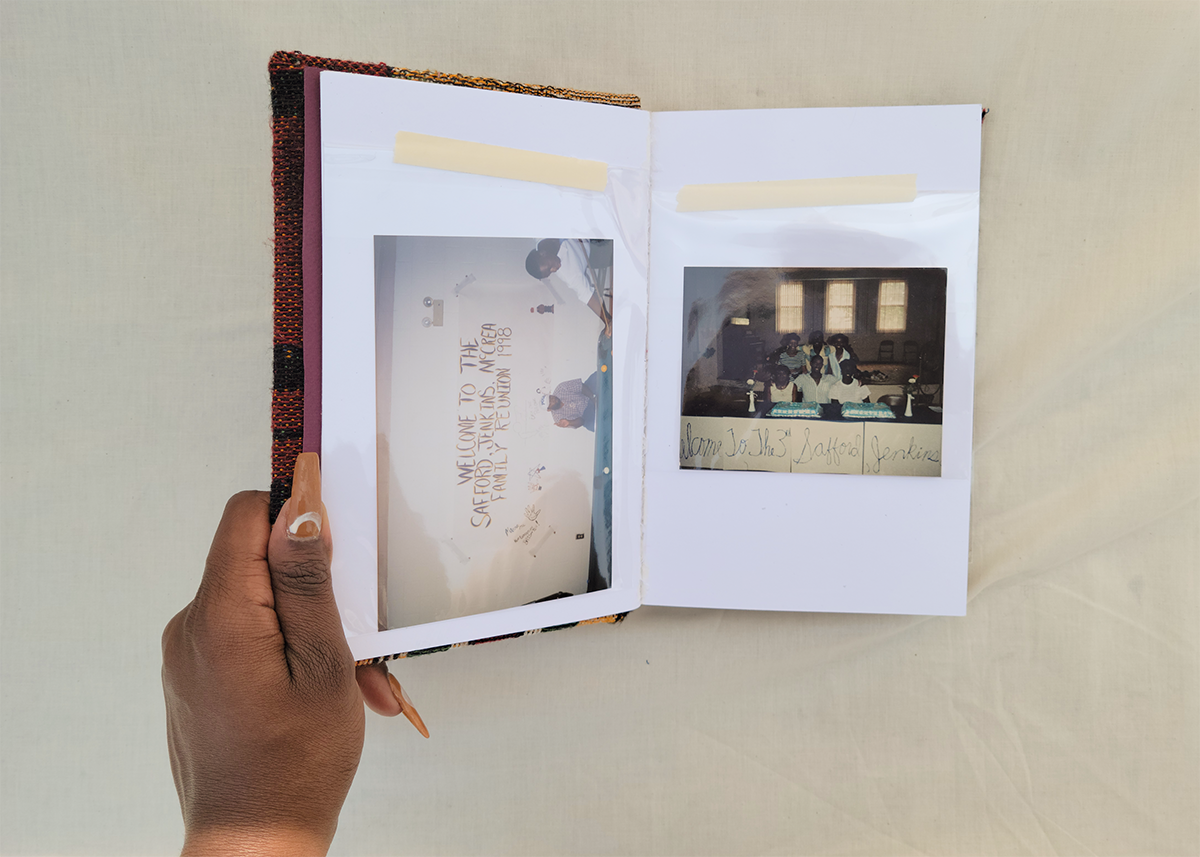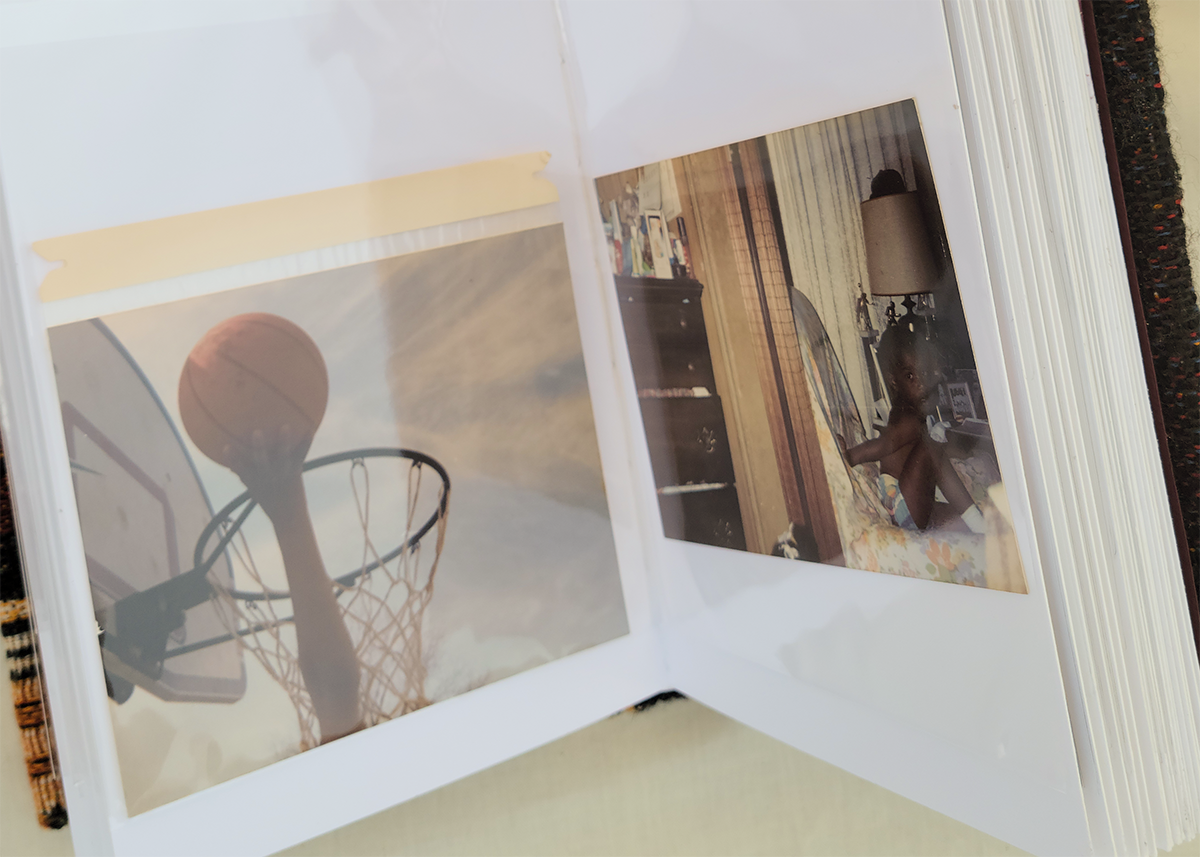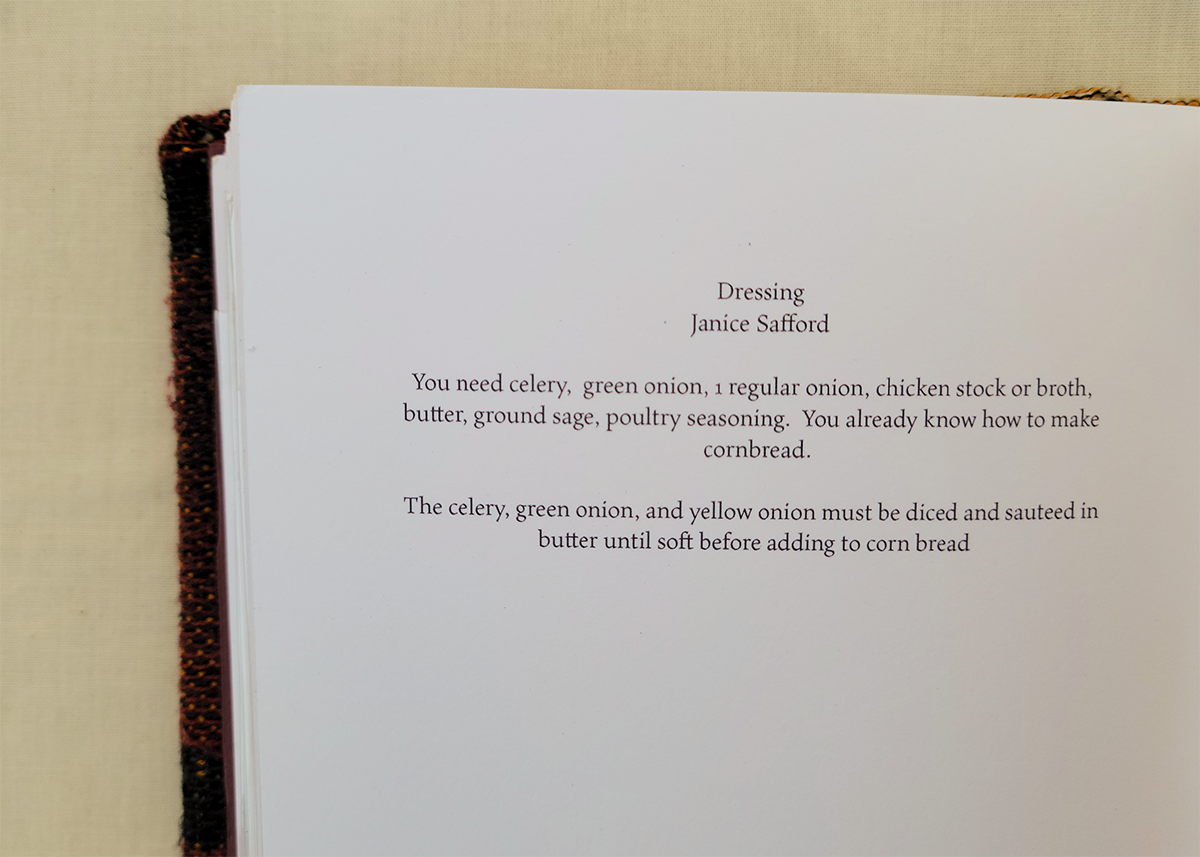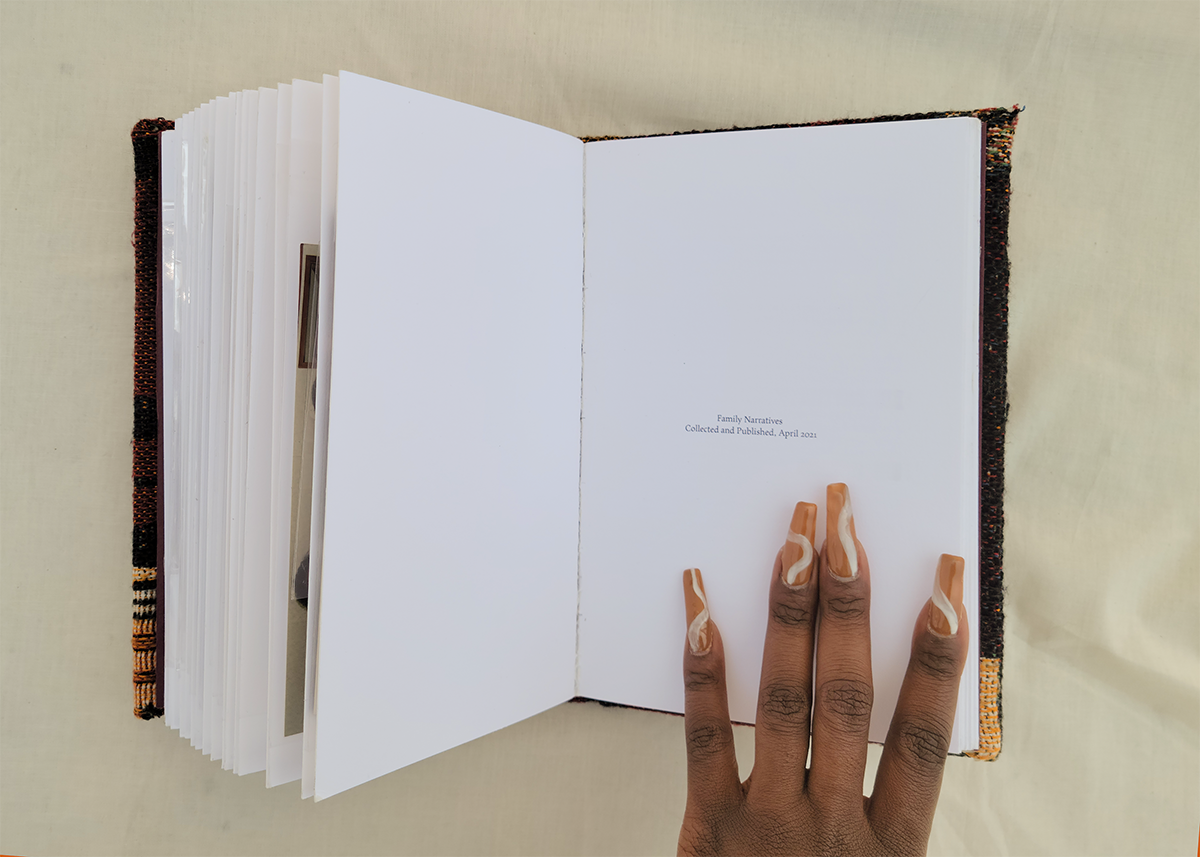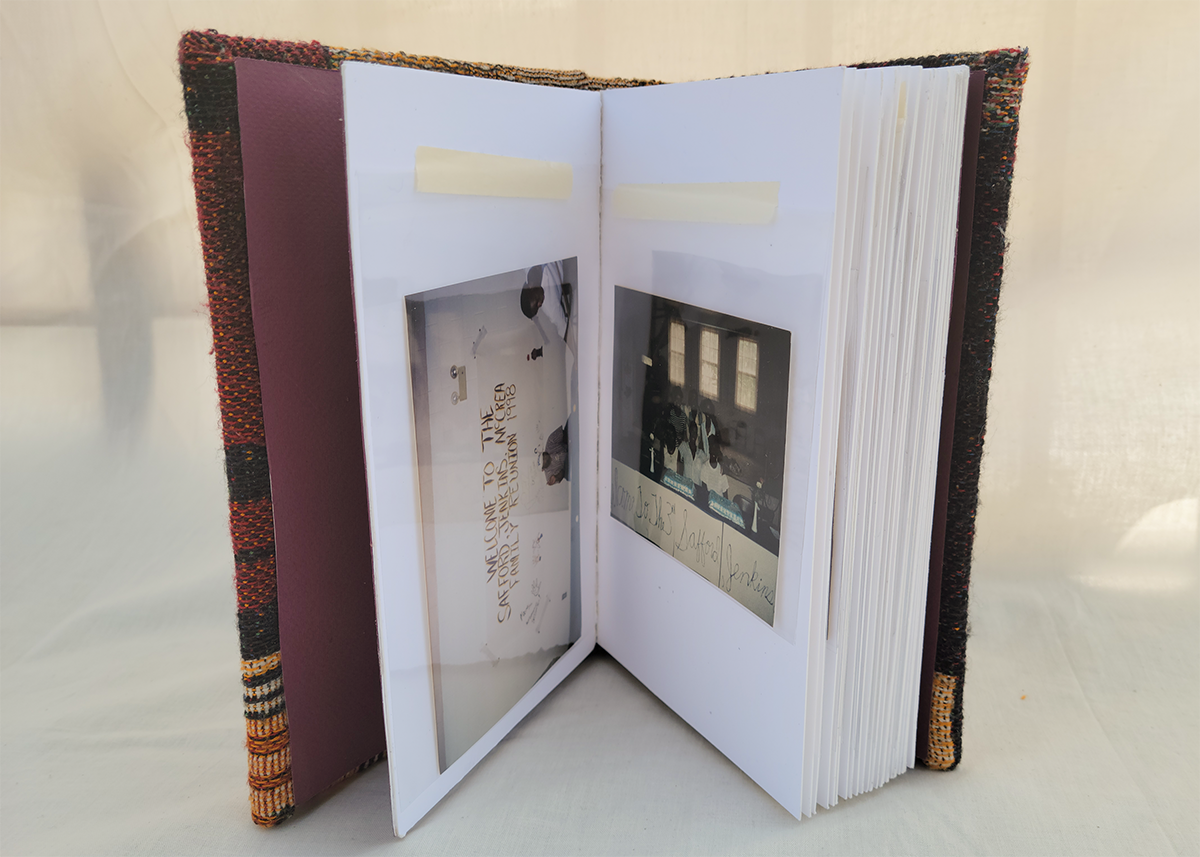Andy Safford
Andy Safford
African American narratives have been overwritten, revised, and recontextualized to a point where many original Black American narratives and cultural artifacts have been lost over time largely, as a result of the undervaluing of Black artifacts by archival institutions. Although there has been an uprising of scholars and archivists who are working to preserve the cultural works that continue to not be prioritized by government archival practices, there is much work to be done as only 2% of the 95,000+ entries in the National Register of Historic Places few center around where are centered around the preservation of black spaces (Equal Justice Initiative, 2020). Only 2% of those entries are centered around the African American experience. On a much smaller scale, personal archives created by the Black American community in the form of crafts are too, important artifacts that can be used to develop a time capsule of cultural memory and practice. Although these archives are minuscule compared to the archives preserved by government organizations, personal archives can serve to reconstruct the loss fostered by the failure of past organizations to preserve Black history and culture.
As an artist, I am interested in the archival of my personal work and the preservation of that work for time to come. The art of craft in the mediums of quilt making, bookmaking, and fiber arts are all archival methods that I am particularly drawn to. As a result, in my art-based self-study I have incorporated these archival methods into an anthological scrapbook that contains narratives of cultural memory from those in my immediate family. I asked members of my family to participate in writing personal narratives, memories that they still remember to this day. They were asked to write two pages, but I also received three-page entries. I compiled these narratives into a book which also includes my personal memories and other mementos that I or my family have developed.
As I research various historical archival methods within the African American diaspora, I have begun to discuss the main question: “Why is it important to value craft [bookmaking] as documents of cultural memory in the context of the African American diaspora/experience?” I am also exploring the questions: “How can archives such as scrapbooks create a shared narrative across the African American diaspora?” “To what extent is craft [bookmaking] a sustainable personal archive to document cultural memory/preserve oral history?,” and “How does the creation of a personal archive foster / reconstruct a shared memory within a family?” In my experience, as I work to create a project that will last through time and become an artifact within my family, I have found that craft is a personally valuable method for creating a personal archive. The handmade elements in tandem with personal memories that make up the archive have an effect that feels sentimental for both me as the artist and the viewer.
As an artist, I am interested in the archival of my personal work and the preservation of that work for time to come. The art of craft in the mediums of quilt making, bookmaking, and fiber arts are all archival methods that I am particularly drawn to. As a result, in my art-based self-study I have incorporated these archival methods into an anthological scrapbook that contains narratives of cultural memory from those in my immediate family. I asked members of my family to participate in writing personal narratives, memories that they still remember to this day. They were asked to write two pages, but I also received three-page entries. I compiled these narratives into a book which also includes my personal memories and other mementos that I or my family have developed.
As I research various historical archival methods within the African American diaspora, I have begun to discuss the main question: “Why is it important to value craft [bookmaking] as documents of cultural memory in the context of the African American diaspora/experience?” I am also exploring the questions: “How can archives such as scrapbooks create a shared narrative across the African American diaspora?” “To what extent is craft [bookmaking] a sustainable personal archive to document cultural memory/preserve oral history?,” and “How does the creation of a personal archive foster / reconstruct a shared memory within a family?” In my experience, as I work to create a project that will last through time and become an artifact within my family, I have found that craft is a personally valuable method for creating a personal archive. The handmade elements in tandem with personal memories that make up the archive have an effect that feels sentimental for both me as the artist and the viewer.
Thesis Website
http://rememorybook.com
Artist Statement
My body of work relates to memory and social reform. The art I create stems from my lived experience as a Black woman in America and how I reflect on that fact. The books I have created in the past reflect either my experience or the collective Black experience. As an artist, I work mainly with textiles and garments; however, as I expand into other mediums, I meld my interest in memory into my practice.
I have created an anthology of stories from both my family and my own memories. Reminiscent of the historical archival practices and bookmaking techniques, my book titled UnKnotted, Vol. 1 is a collection of memories that make up my immediate and peripheral identity.
UnKnotted, Vol. 1 is a durational piece. As I grow and change over the years, I would like to revisit this project, renew my book, and include my memories and others that have shaped the person I will be in the future. UnKnotted, Vol. 1 will be my second durational piece surrounding memory.
UnKnotted, Vol. 1 was developed as a way to realize myself in the space of the world and visualize the world through the lens of those around me. I find my identity to be a tessellation of other family identities that I’ve interacted with and grew up surrounded by. In my search for sustainable archives and archival processes, I delved into the world of bookmaking, where I began researching the role of different kinds of books in personal archives. I find that scrapbooks, photo albums, and cookbooks are interesting and powerful archival tools, which I am using as inspiration in my book. I am interested in the preservation and sharing of memories. More specifically, I am interested in how memory is shared and cultivated among members of a community.
I have created an anthology of stories from both my family and my own memories. Reminiscent of the historical archival practices and bookmaking techniques, my book titled UnKnotted, Vol. 1 is a collection of memories that make up my immediate and peripheral identity.
UnKnotted, Vol. 1 is a durational piece. As I grow and change over the years, I would like to revisit this project, renew my book, and include my memories and others that have shaped the person I will be in the future. UnKnotted, Vol. 1 will be my second durational piece surrounding memory.
UnKnotted, Vol. 1 was developed as a way to realize myself in the space of the world and visualize the world through the lens of those around me. I find my identity to be a tessellation of other family identities that I’ve interacted with and grew up surrounded by. In my search for sustainable archives and archival processes, I delved into the world of bookmaking, where I began researching the role of different kinds of books in personal archives. I find that scrapbooks, photo albums, and cookbooks are interesting and powerful archival tools, which I am using as inspiration in my book. I am interested in the preservation and sharing of memories. More specifically, I am interested in how memory is shared and cultivated among members of a community.
REMEMORY WITH ME: AN INQUIRY SURROUNDING THE RECONSTRUCTIVE PROCESS OF AFRICAN AMERICAN PERSONAL AND CULTURAL NARRATIVES THROUGH CRAFT
